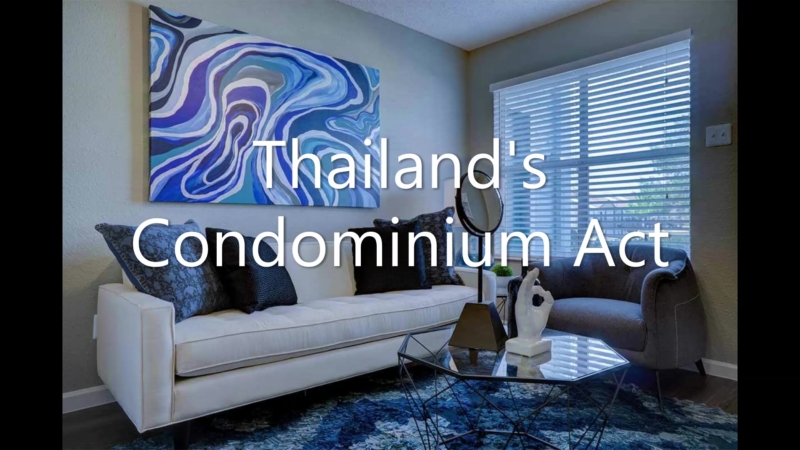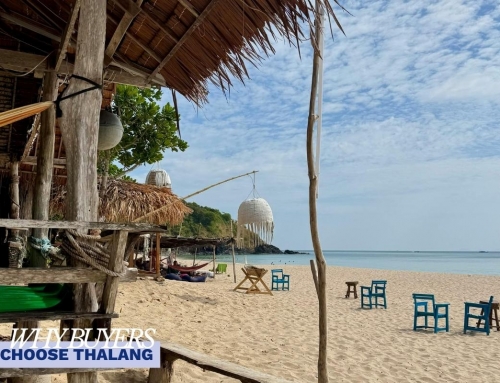When purchasing a condominium in Phuket, one of the most important legal frameworks to understand is the Condominium Act. This piece of legislation outlines how condominiums are structured, governed, and sold in Thailand, and it plays a major role in protecting investors—especially foreign buyers.
Key Consumer Protections Under the Condominium Act
In 2008, updates to the Condominium Act introduced a number of safeguards to protect consumers:
- No more misleading advertising: Developers are required to ensure that promotional material matches what is delivered in the final product.
- Standardised contracts: All purchase agreements must follow templates outlined in Ministerial Regulations to prevent unfair terms.
- No shifting of maintenance costs: Developers can no longer pass common area fees for unsold units onto other co-owners.
These changes were introduced to foster greater transparency and confidence in the market.
The Condominium Acts:
The 1979 Condominium Act
The 1979 Condominium Act aimed to bring in foreign investment, but it also wanted to limit the extent of that investment in each individual condo development.
By capping the number of foreigners owning within a given development, every project would always be majority owned by Thai nationals.
The Act passed in 1979 limited foreign ownership to 40%. However, as the popularity of condos being bought by foreigners increased, the limit was raised again in a later 1999 Act.
The 1999 Condominium Act
In 1999 the original Act was amended and the permissible foreign ownership threshold went from 40% up to 49%. This paved the way for a further acceleration in the condo market.
As the tourist industry in Thailand flourished, the number of potential buyers visiting the country increased. This is when condominium sales really began to take off.
The 2008 Condominium Act
The 2008 Act had no room to manoeuvre with the 49% ownership limit. This was because foreigners were unable to receive majority ownership of the land. This was even on fractional basis split between dozens of individual owners.
The 2008 Condominium Act focused instead on a much more pressing issue for the authorities – protecting consumers.
Protection of Common Areas
In the past, developers sometimes attempted to reclaim or repurpose gardens or common areas after units were sold. The Condominium Act now ensures that once a unit is sold, those areas belong to the collective co-owners.
This legal framework protects buyers from losing access to promised facilities and ensures communal areas remain untouched.
What Happens to Unsold Units?
Developers retain ownership of any unsold units and may choose to lease them out or sell them later. This is perfectly legal and does not impact the foreign ownership quota. Unsold units remain under Thai ownership until sold to foreigners.
This clause helps protect the 49% foreign ownership threshold while giving developers flexibility to manage their inventory.
Leasing Condominiums: A Separate Legal Framework
It’s important to note that leasing a condominium is governed by the Thai Civil and Commercial Code (Sections 537–574), not the Condominium Act. This distinction matters for both tenants and landlords, as lease terms, extensions, and renewals are structured differently under Thai law.
This separation ensures clarity in how long-term rentals or investment leases are structured.
(It is important to note, however, that the lease of condos in Thailand is not governed by the Condominium Act, but by the Chapter Hire of Property, laid out in sections 537 – 574 of the Civil and Commercial Code.)
Unfortunately, foreigners are sometimes persuaded to purchase these units with the use of a Thai Company Limited. There are are reasons why we don’t recommend this. You can read our article on this here:
Using a Thai Company Limited to Purchase a Leasehold Condo Unit
Conclusion: Why Legal Clarity Benefits Phuket Property Buyers
The Condominium Act plays a key role in establishing confidence for foreign buyers investing in Phuket. From protecting shared spaces to regulating contracts, it’s a solid piece of legislation that has matured with the market.
Understanding this law can help you make better decisions—whether you’re buying for lifestyle, investment, or both.
For those readers that enjoy details and more technical reading, The Office of the Council of State has provided a translation of the Condominium Act which covers all aspects of The Act in detail.
You may click the link below for the full unofficial translation:
http://web.krisdika.go.th/data/outsitedata/outsite21/file/Condominium_Act_BE_2522_(1979).pdf
Frequently Asked Questions (FAQ)
Can foreigners legally buy a condominium in Phuket?
Yes. Foreigners can legally own a condominium unit in Phuket, provided that no more than 49% of the total saleable area in the condominium development is owned by non-Thais.
What does the Condominium Act say about common areas?
The Act protects common areas by ensuring they are co-owned by all unit owners. Developers cannot claim back gardens, gyms, or shared facilities after units are sold.
Is leasing a condo covered by the Condominium Act?
No. Leasing falls under the Thai Civil and Commercial Code. Lease agreements, extensions, and renewal clauses are governed by a different set of laws.
What happens to unsold foreign quota units?
They remain under Thai ownership until sold. Unsold units do not count toward the foreign ownership limit until legally transferred to a foreigner.
Why was the Condominium Act introduced?
Originally passed in 1979, the Act aimed to boost real estate development and attract foreign investment by creating a legal structure for joint ownership and clear title rights.
Internal Resources You May Find Helpful:
- Buying a Condominium in Phuket – A Complete Guide
- Understanding the Role of the Condominium Juristic Person
- What Is a Condominium Sinking Fund?
Get in Touch
If you’re considering investing in a condominium in Phuket, our expert team is here to help you navigate legal structures and ownership rules with confidence.
Contact us | Call Now On: +66 9484 11918





Social Contact